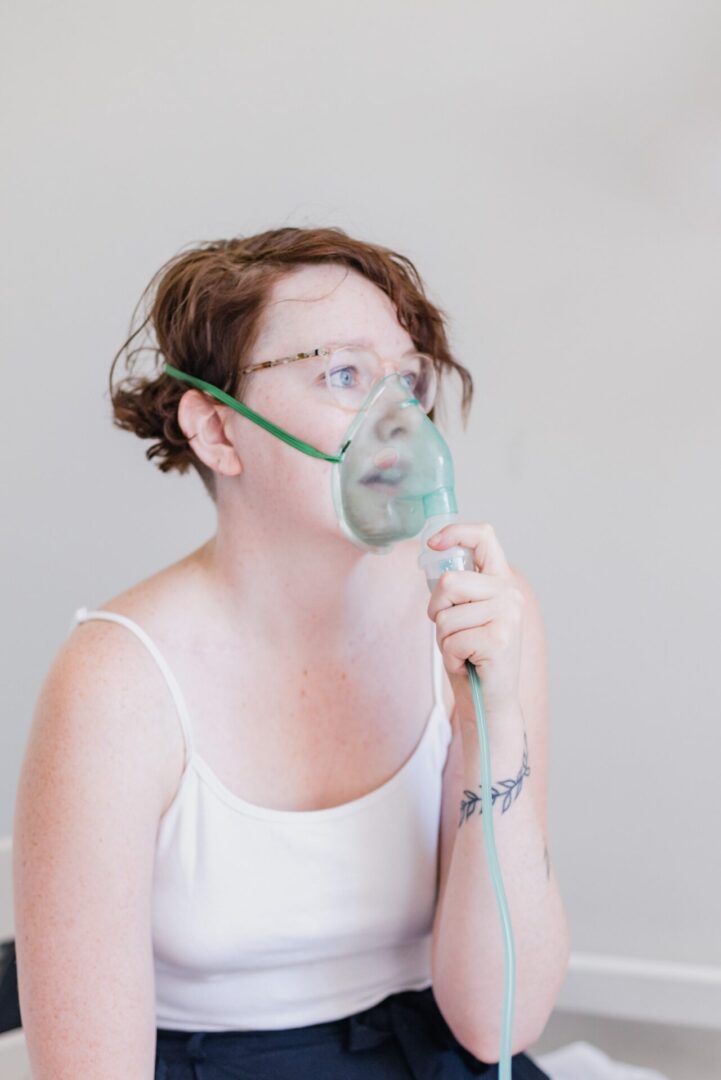Making Patients More Comfortable With Asthma Treatment
Asthma’s primary cause is inflamed airways in the lungs. This inflammation makes the airways smaller, which makes it more difficult for air to move in and out of the lungs.
While asthma is most commonly thought of as a “childhood disease,” it is often diagnosed as a new condition in older people. Whether it begins with a nighttime cough or difficulty breathing, asthma can be a very frightening disease.
Signs that you might have asthma include:
- Coughing
- Wheezing
- Shortness of breath
- Chest tightness
Many seniors diagnosed with asthma have other health conditions to take into consideration, including drug interaction and disease interaction. It can be more challenging to treat adult-onset asthma, but your allergist/immunologist will work with you to provide the best treatment possible.


Treatment
Long-term control medications prevent symptoms and are taken daily. They include:
- Inhaled Corticosteroids: The most consistently effective long-term control medication
- Long-Acting Bronchodilators (LABAs): These are used in combination with inhaled corticosteroids
- Cromolyn and theophylline: Used as alternative controller medications (not preferred)
- Leukotriene modifiers: Used as alternative controller medications
- Immunomodulators: Omalizumab modifies the allergic immune response
Quick-relief medications include:
- Short-Acting Beta Agonists (SABAs) relax airway muscles to give prompt relief of symptoms
Drugs That Can Trigger Asthma
Beta-blockers may be used for problems such as high blood pressure, heart disease, and migraine headache. They may also be used in an eye drop form for treating the eye disease glaucoma. Ideally, a person with asthma would avoid all beta blockers, but these types of drugs may be quite important for your health and may not substantially worsen your asthma. Your physician may conduct a trial using a “specific” beta-blocker. Remember that even beta-blockers in eye drops may make asthma worse, so be sure to tell your ophthalmologist if you have asthma.
Aspirin and other non-steroidal anti-inflammatory drugs (NSAIDs) include some common over-the-counter pain relievers, such as ibuprofen and naproxen. Approximately 10-20 percent of people with asthma may notice that one or more of these drugs trigger their asthma. These asthma attacks may be severe and even fatal, so patients with known aspirin sensitivity must be very careful to avoid these drugs. Medications that usually don’t cause increased asthma in aspirin-sensitive patients include acetaminophen (low to moderate dose), propoxyphene, and prescribed narcotics such as codeine.
ACE Inhibitors, which may be used for hypertension or heart disease, include lisinopril and enalapril. Although they usually don’t cause asthma, approximately 10 percent of patients who receive one of these drugs develop a cough. This cough may be confused with asthma in some patients and possibly trigger increased wheezing in others.
The bottom line in avoiding medication-induced asthma is to talk with your physician about what medications are best for you.
Source: American Academy of Allergy Asthma & Immunology

